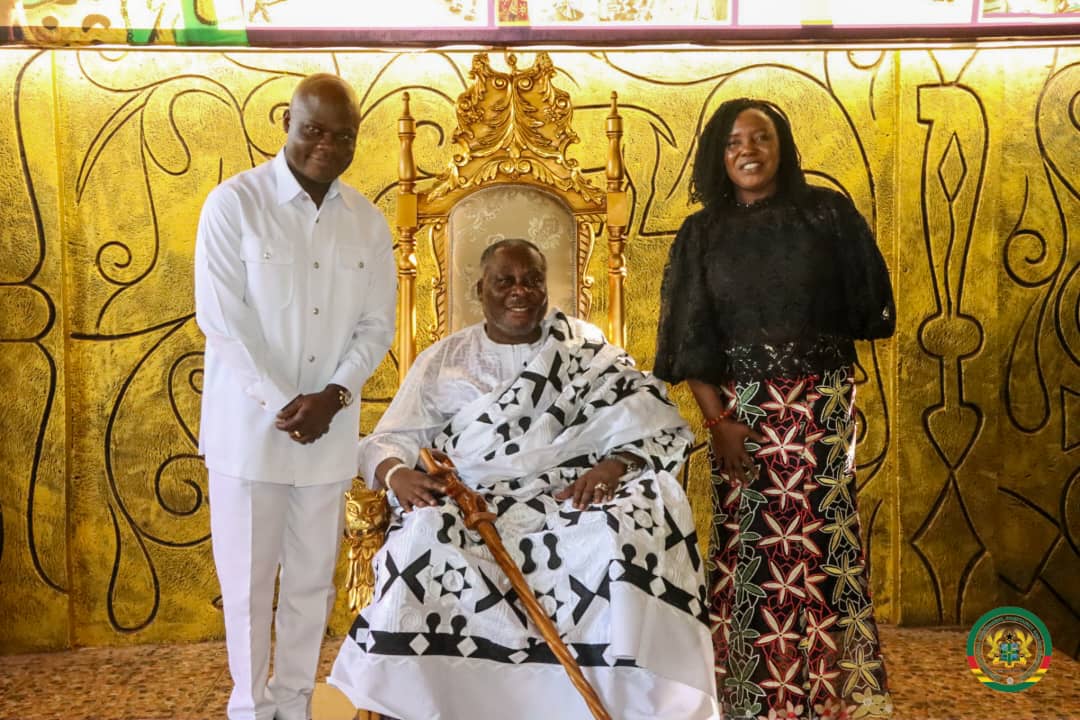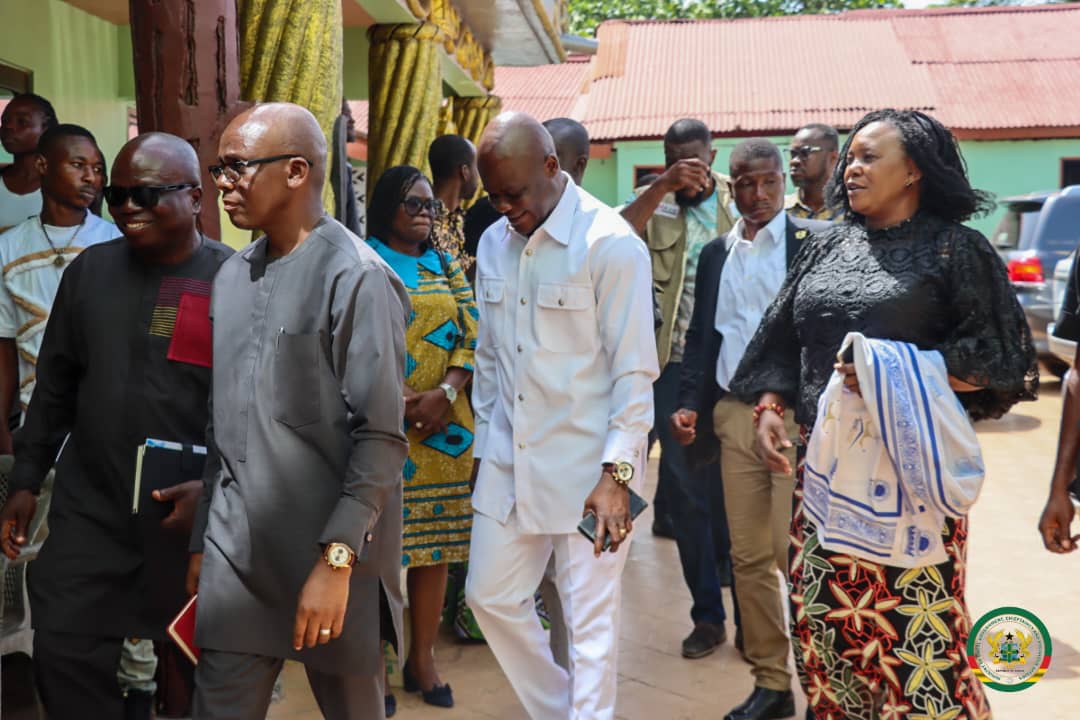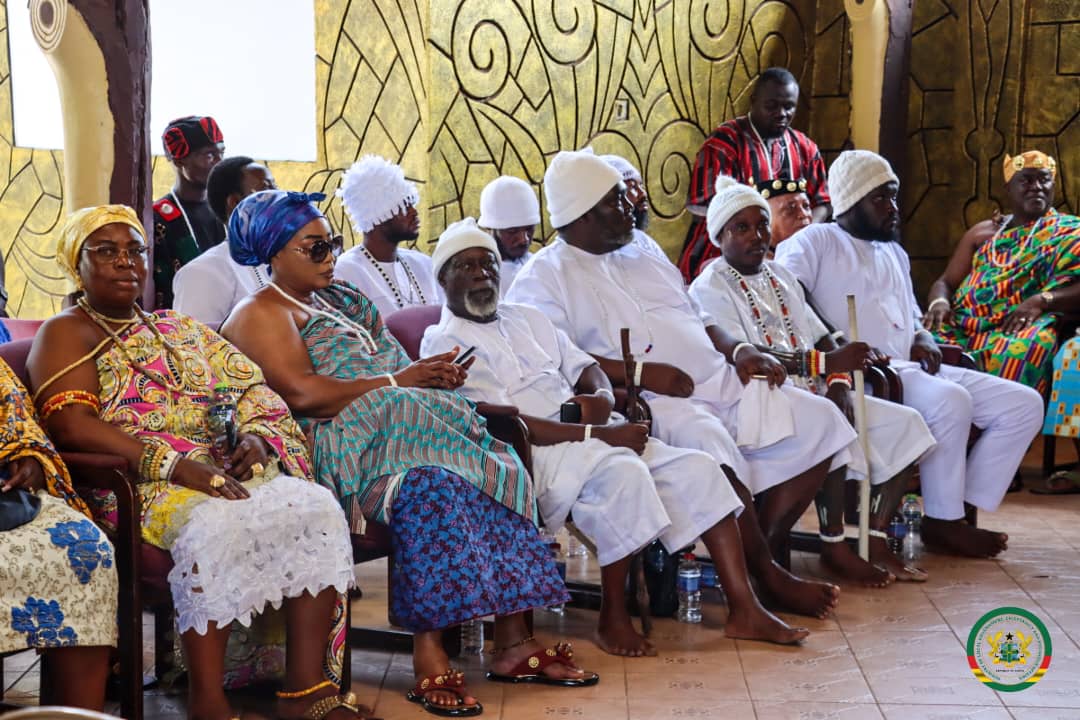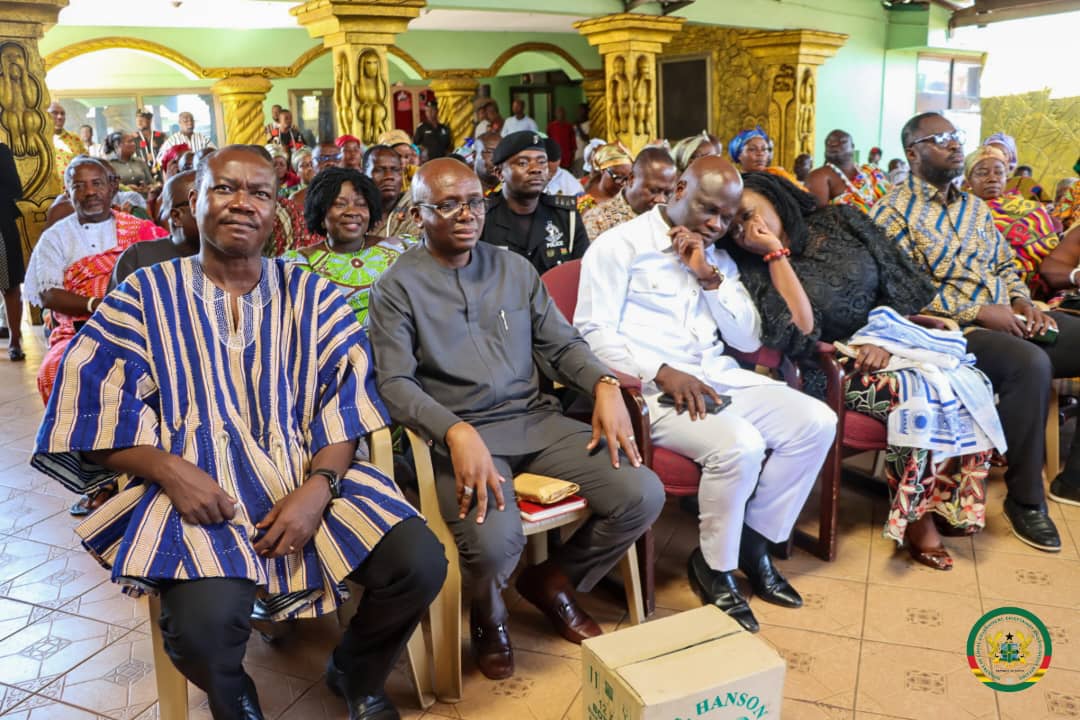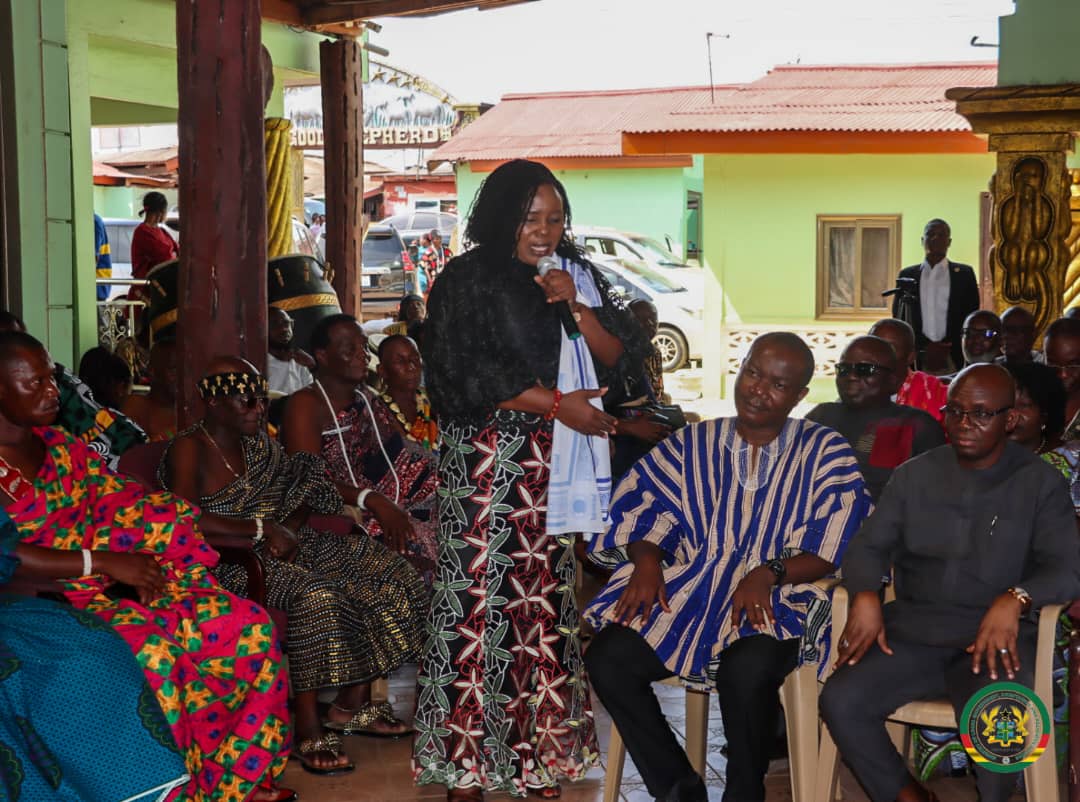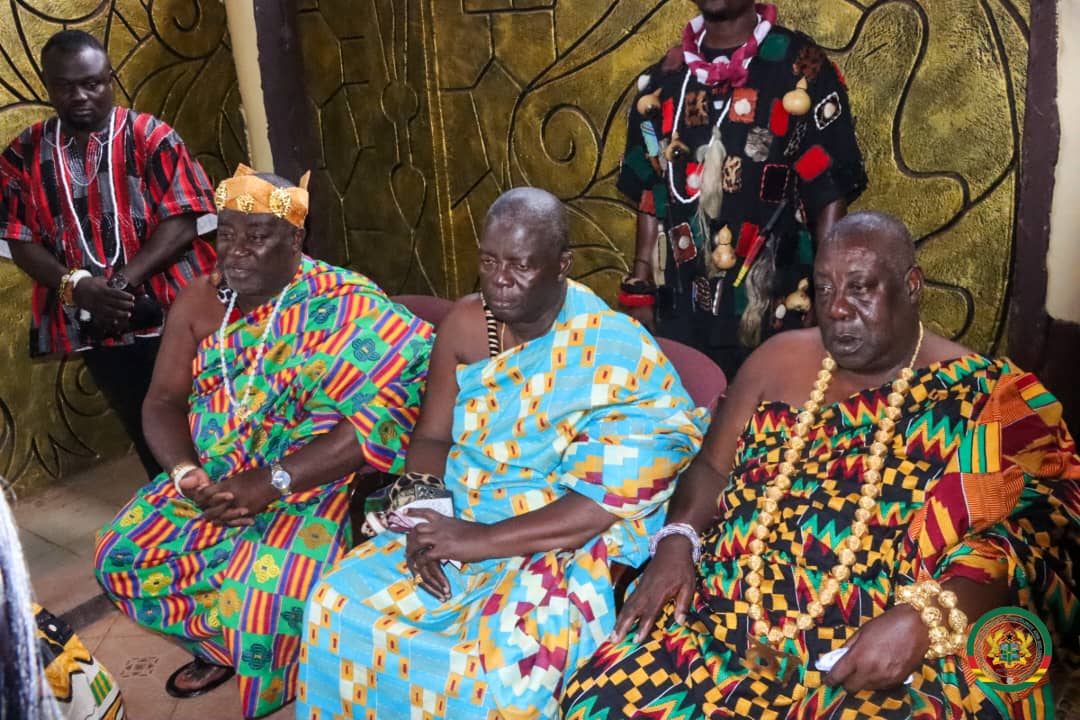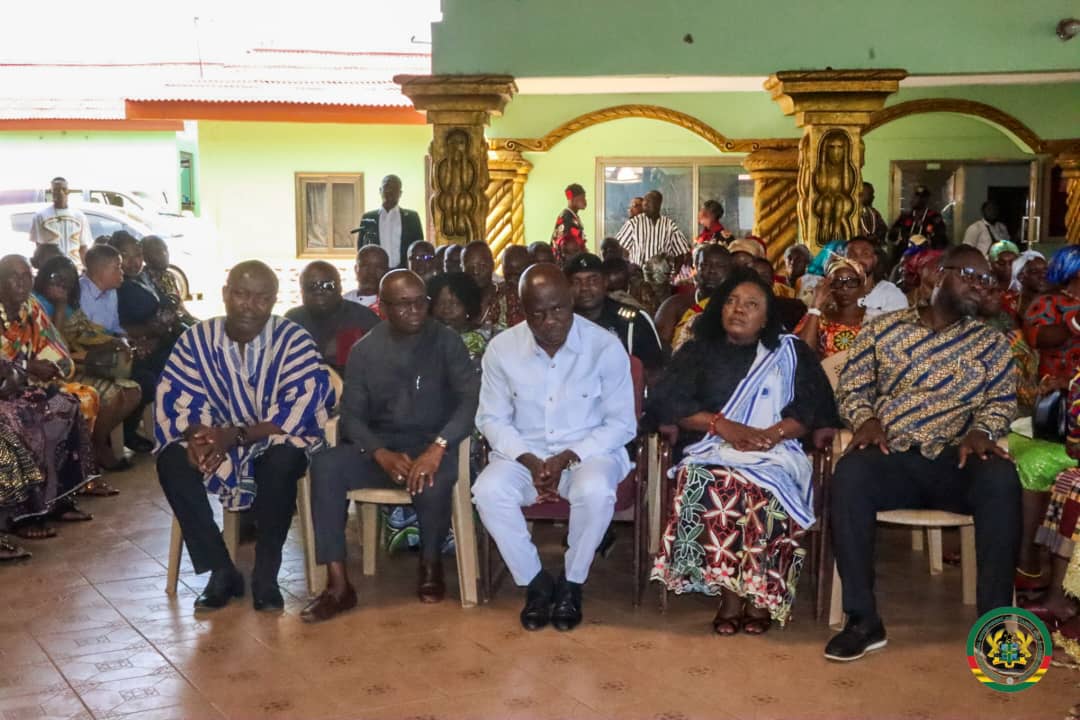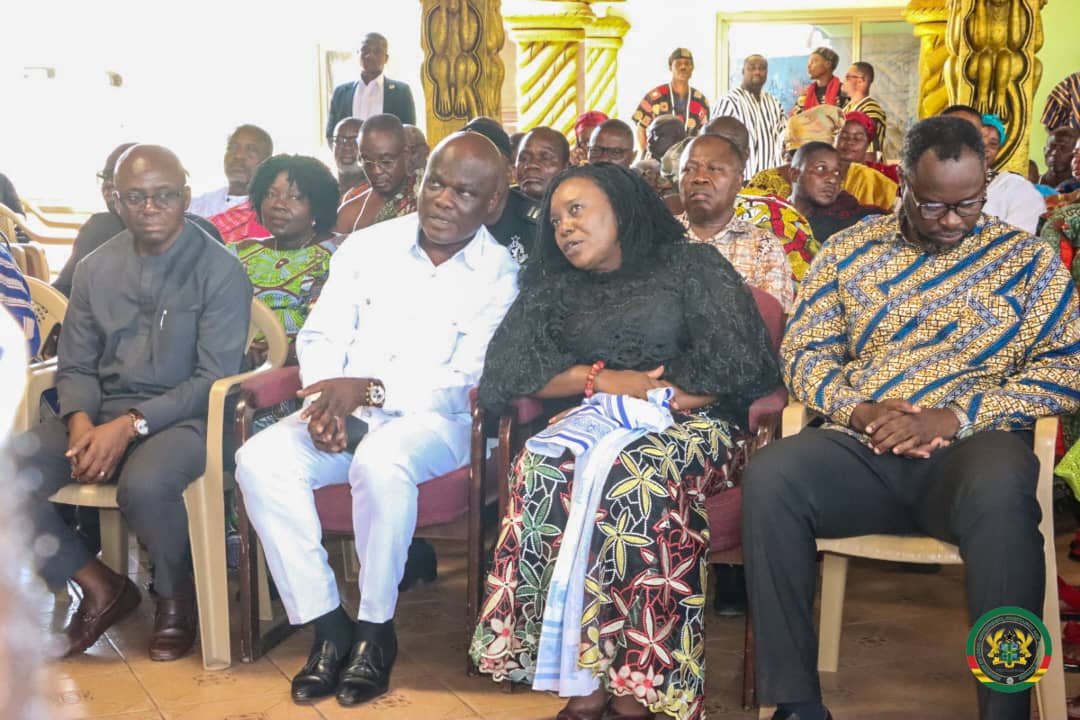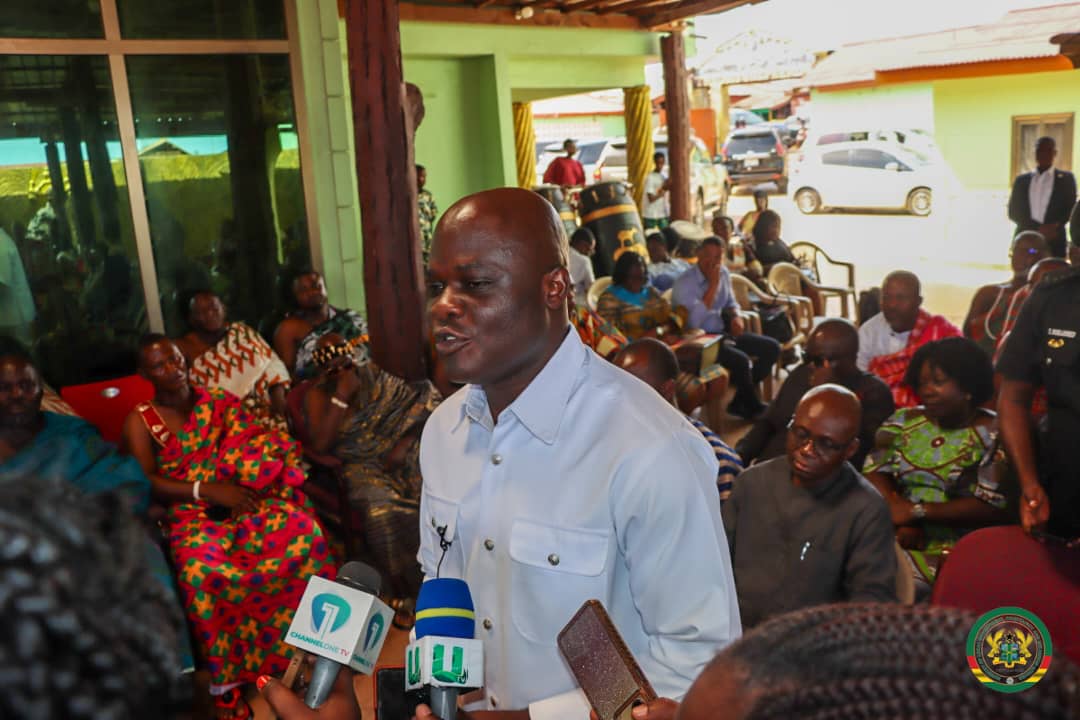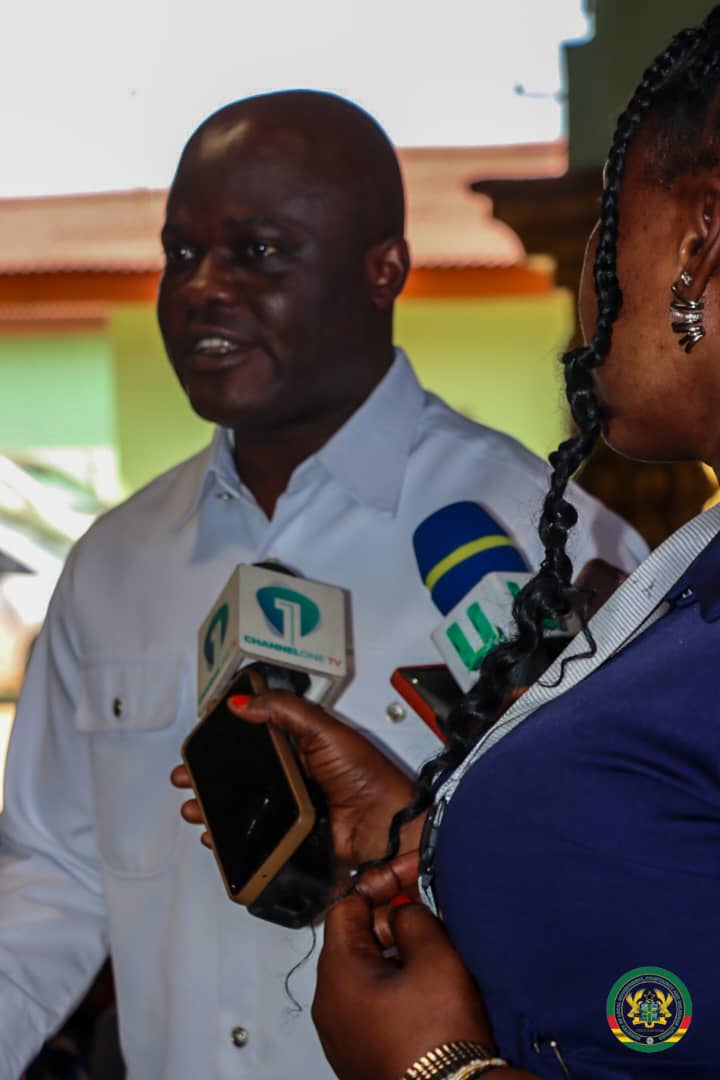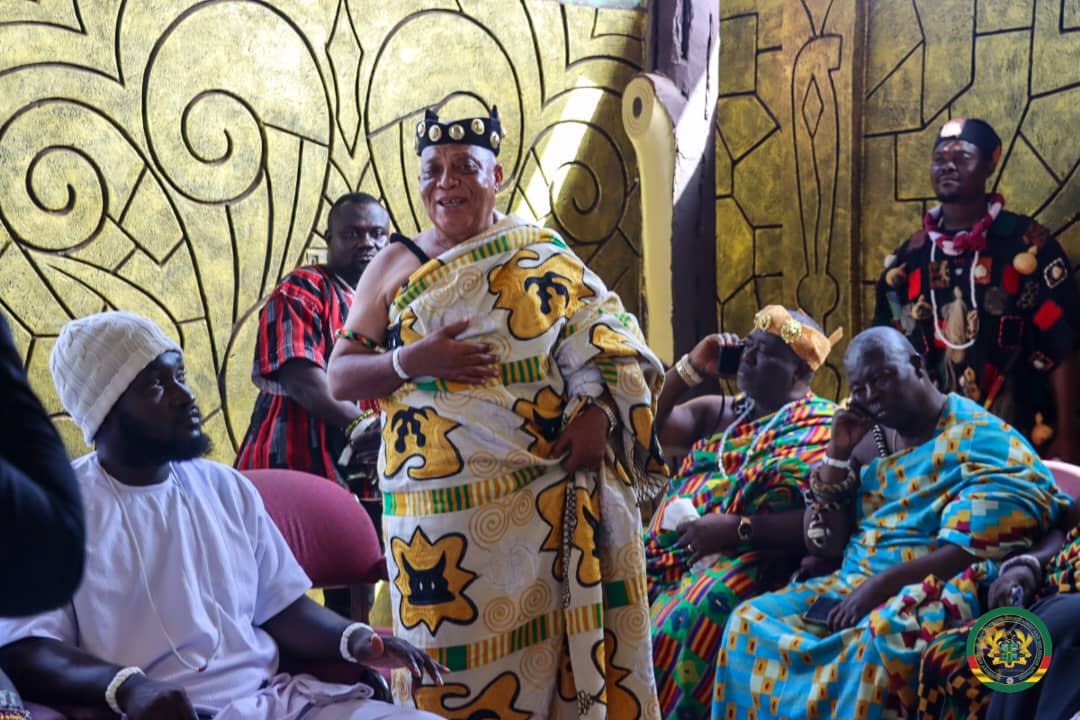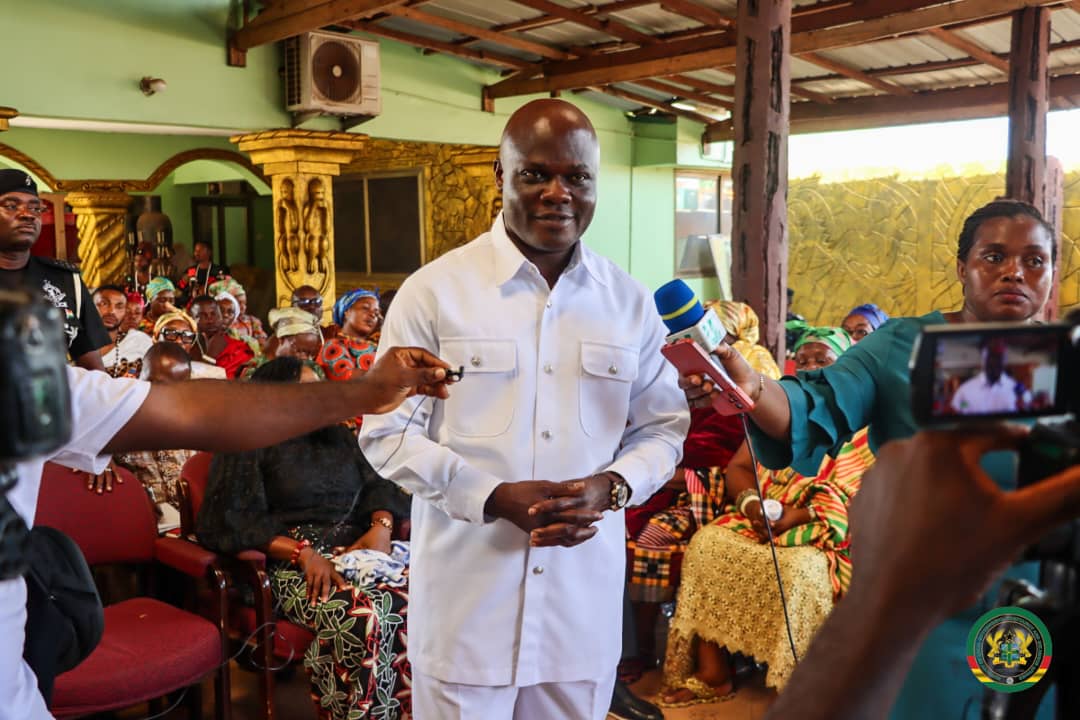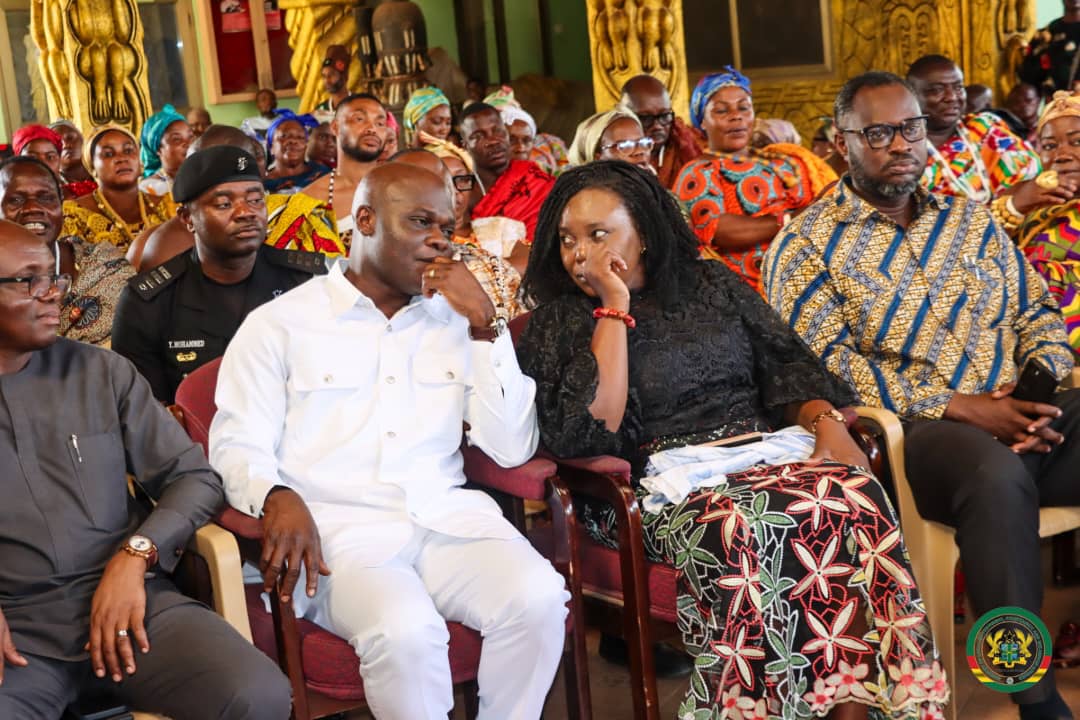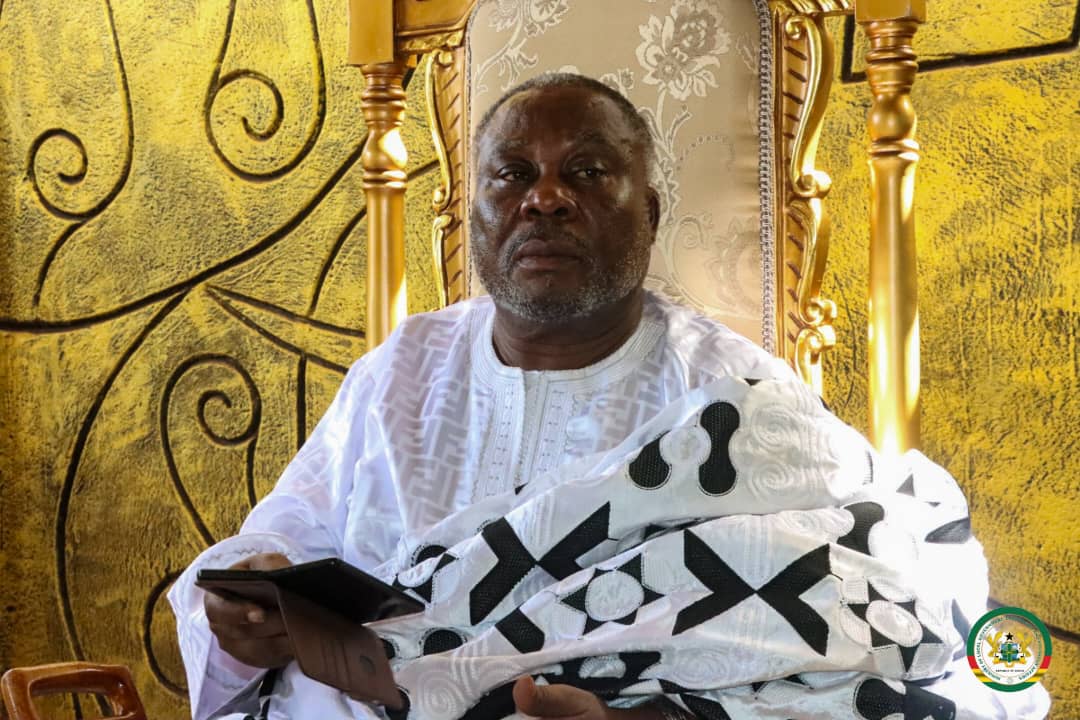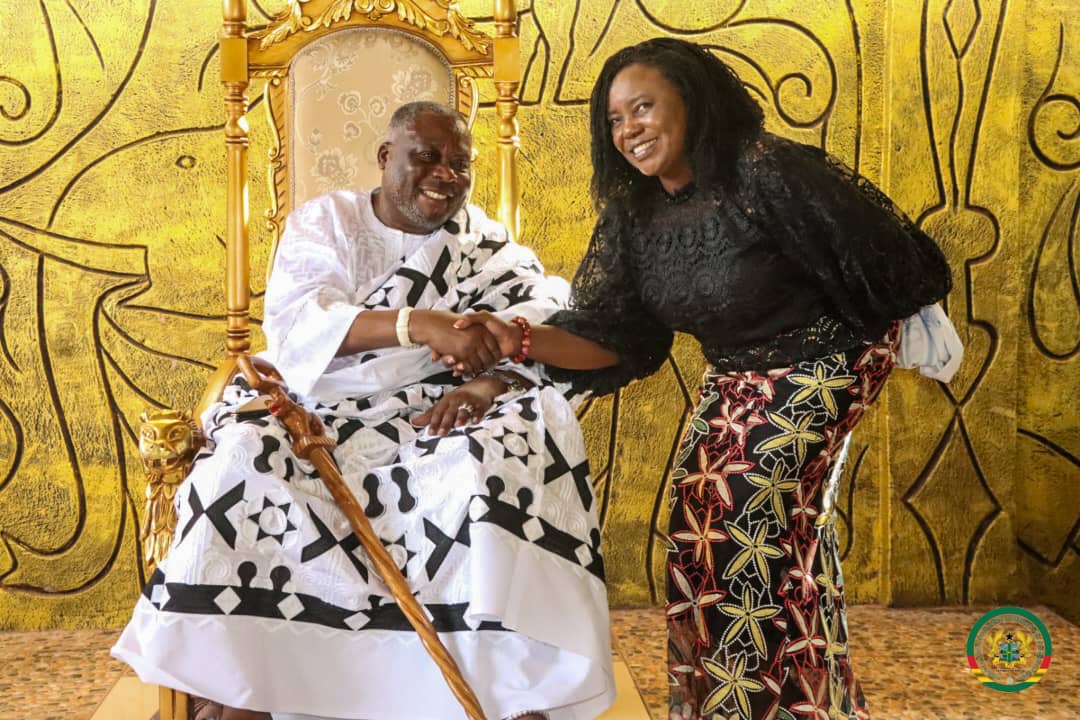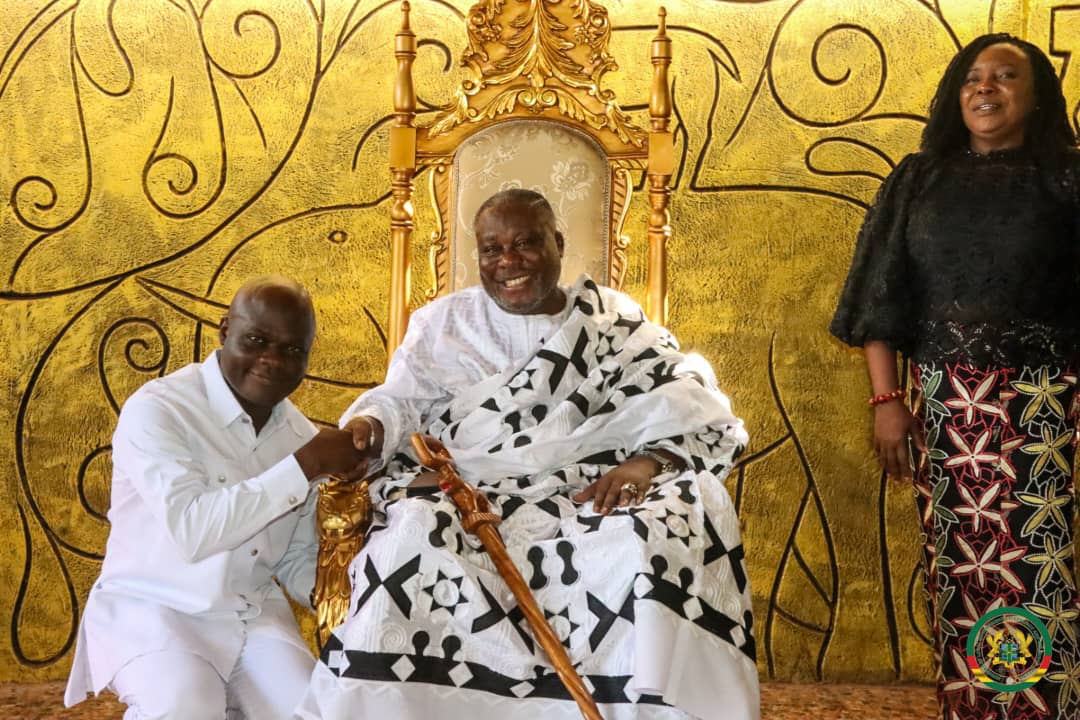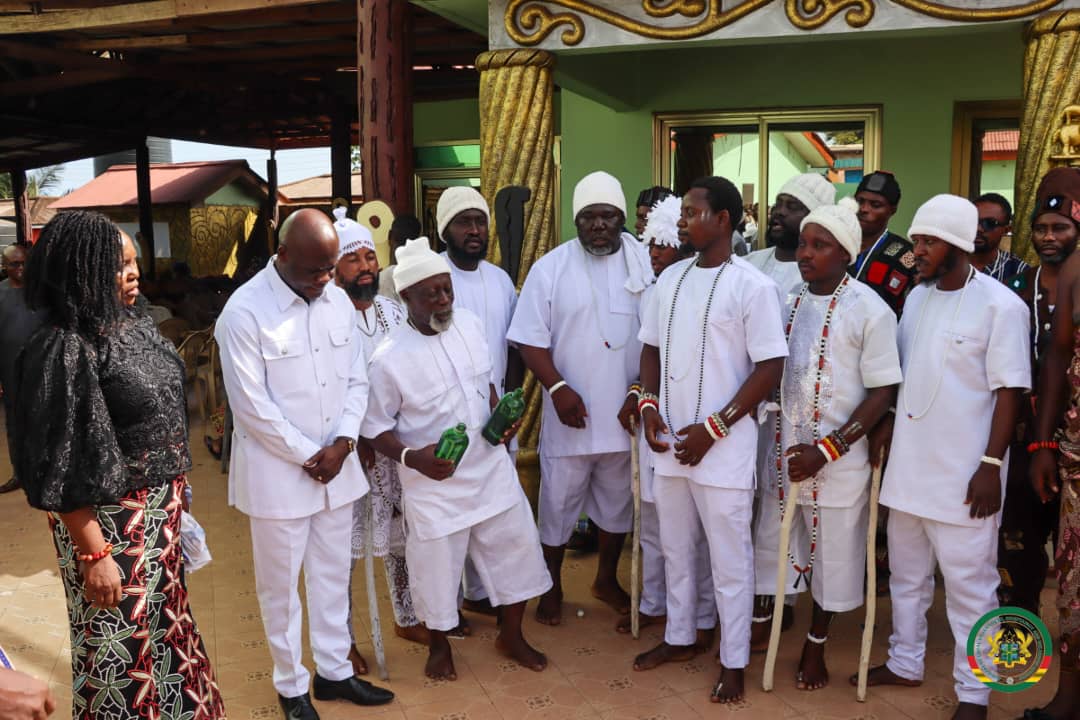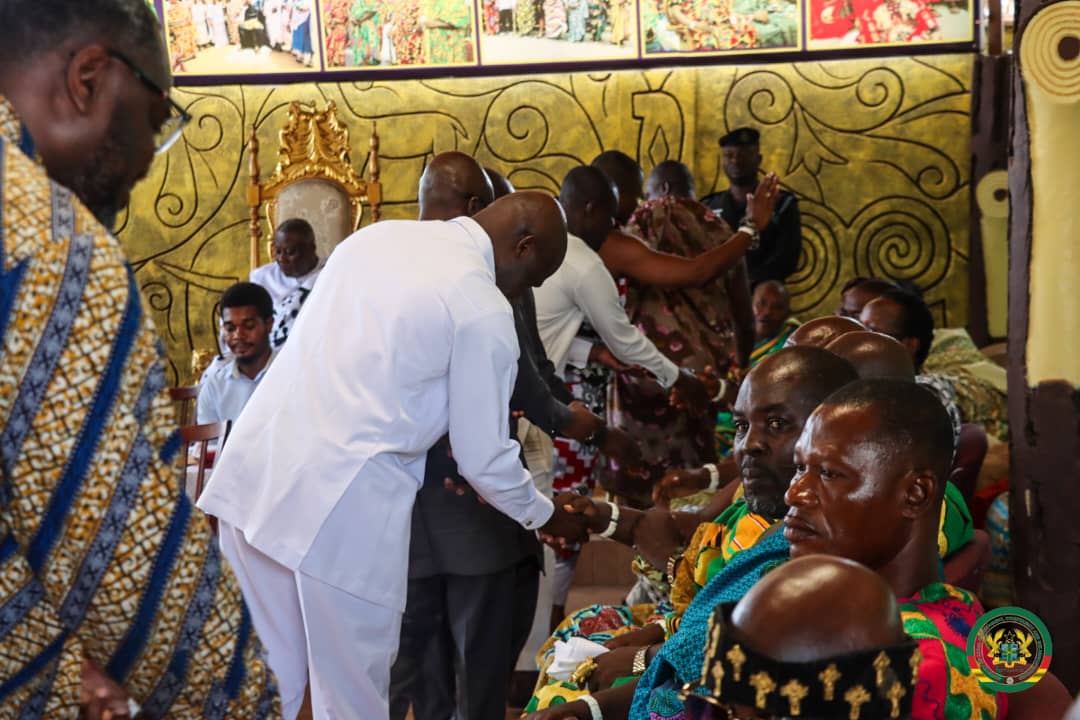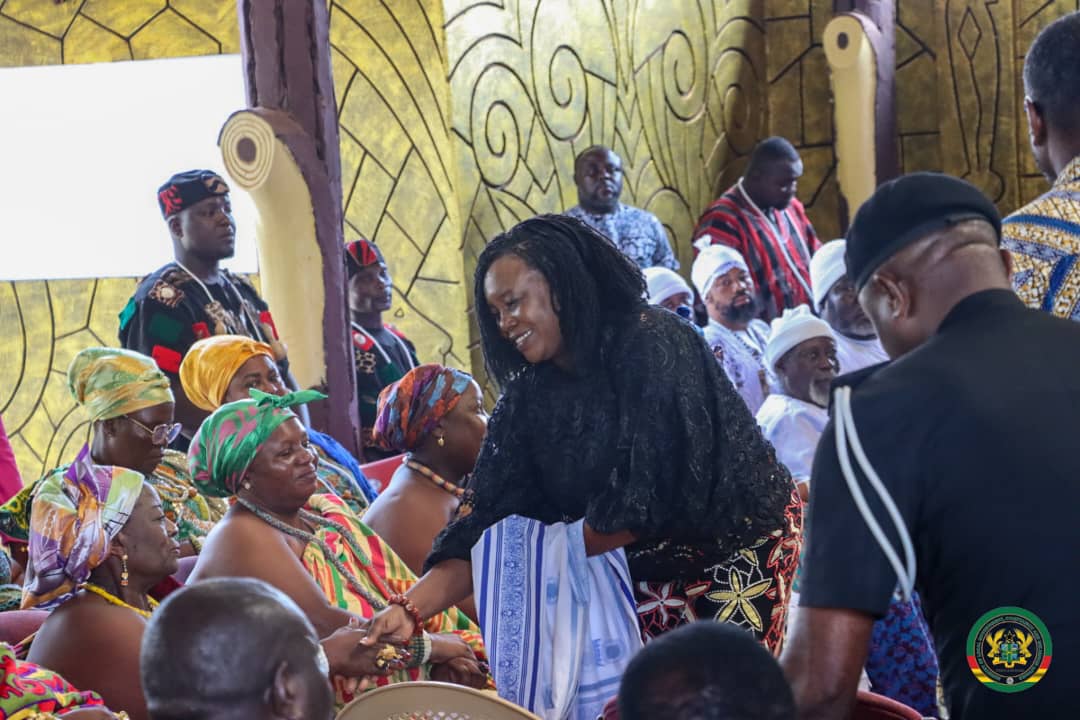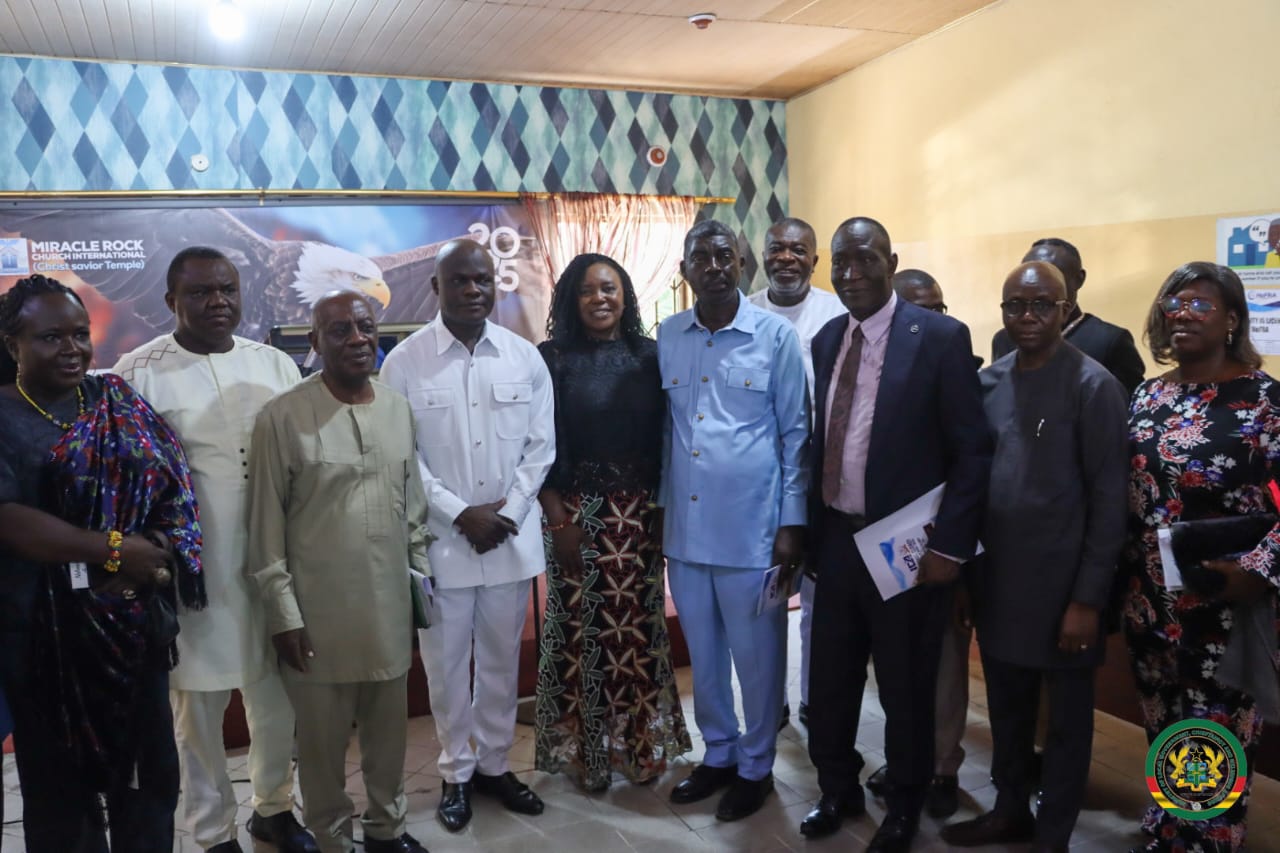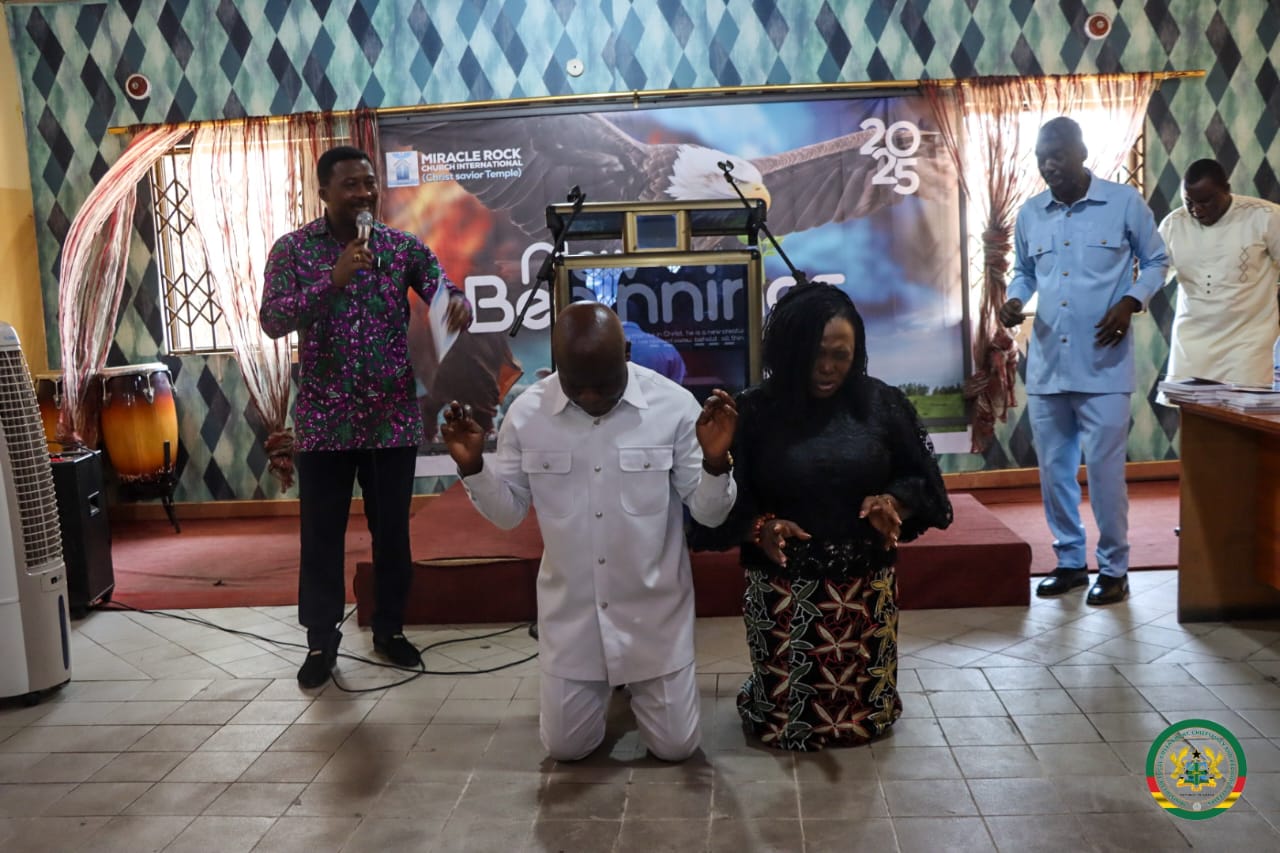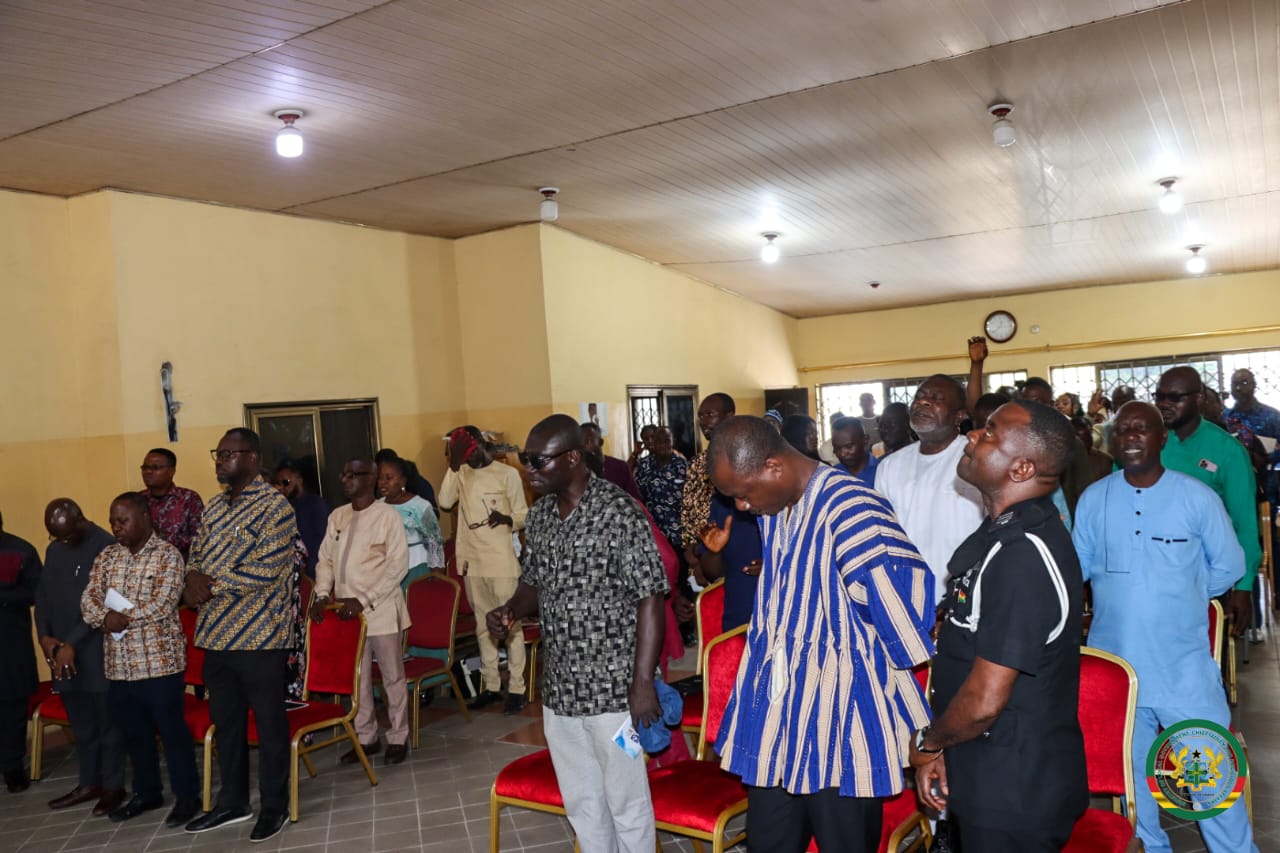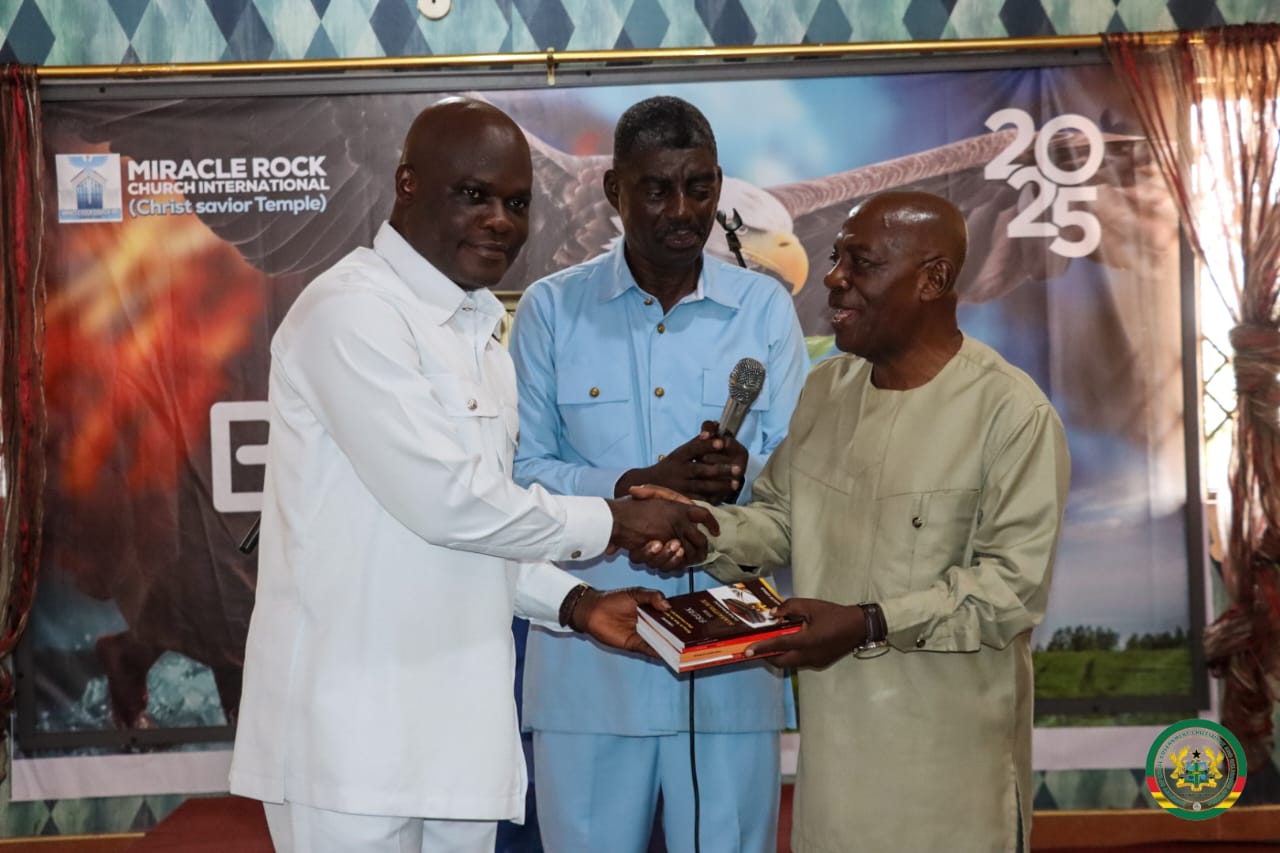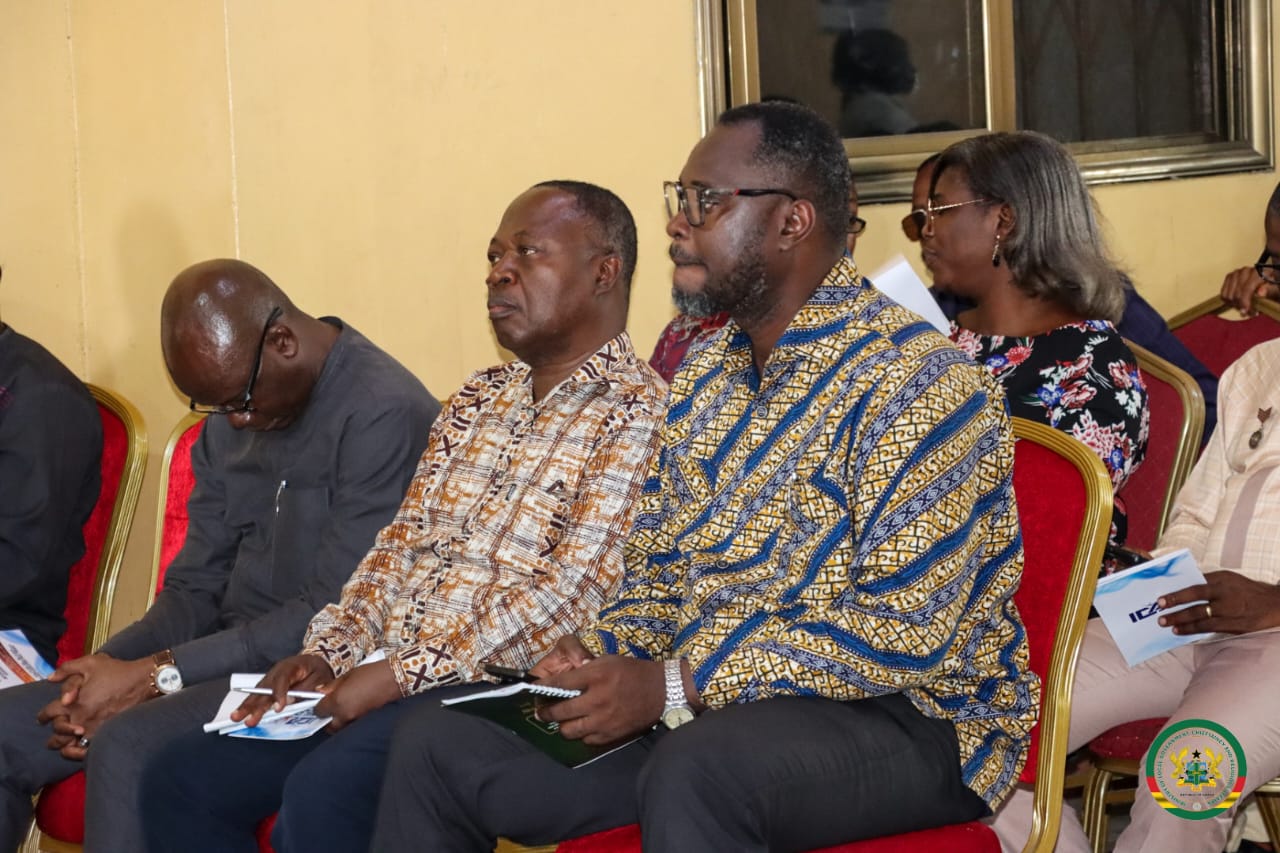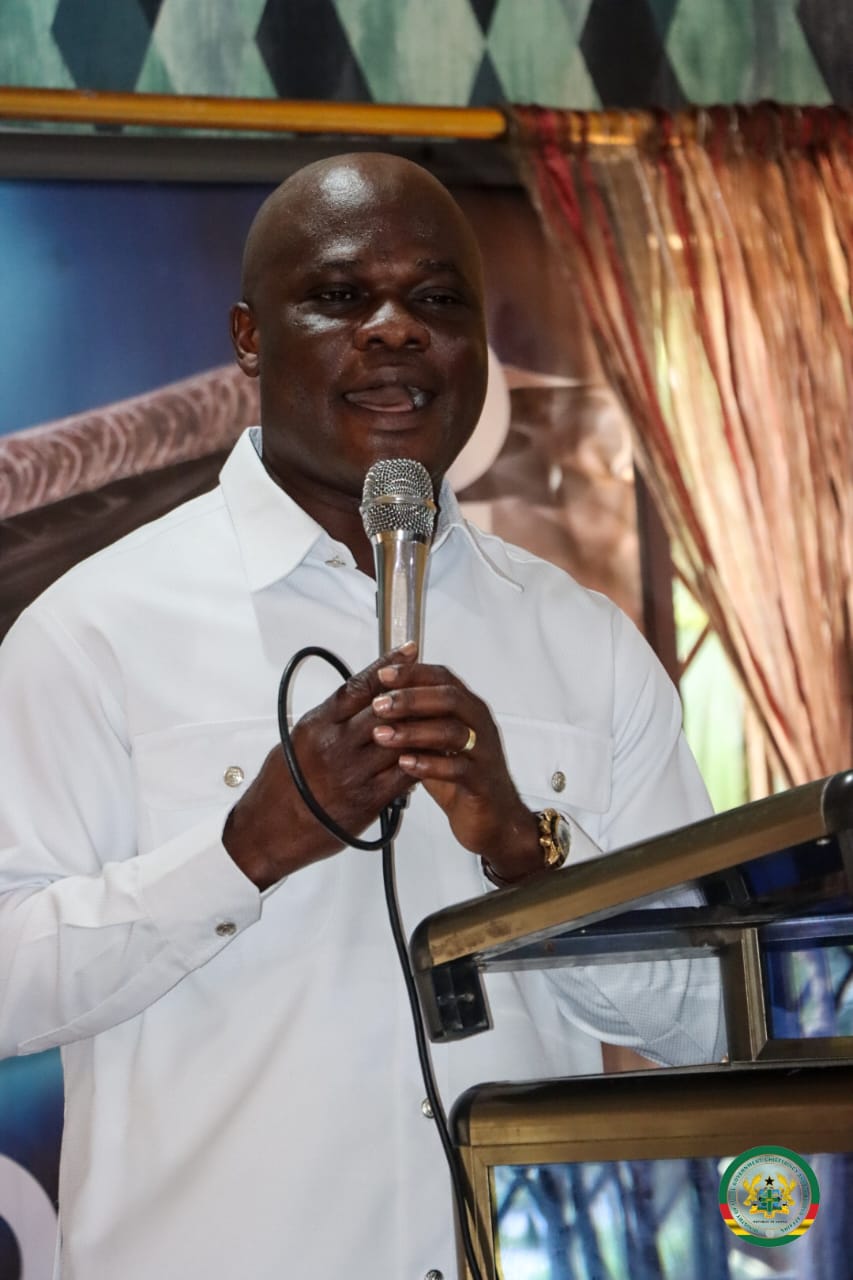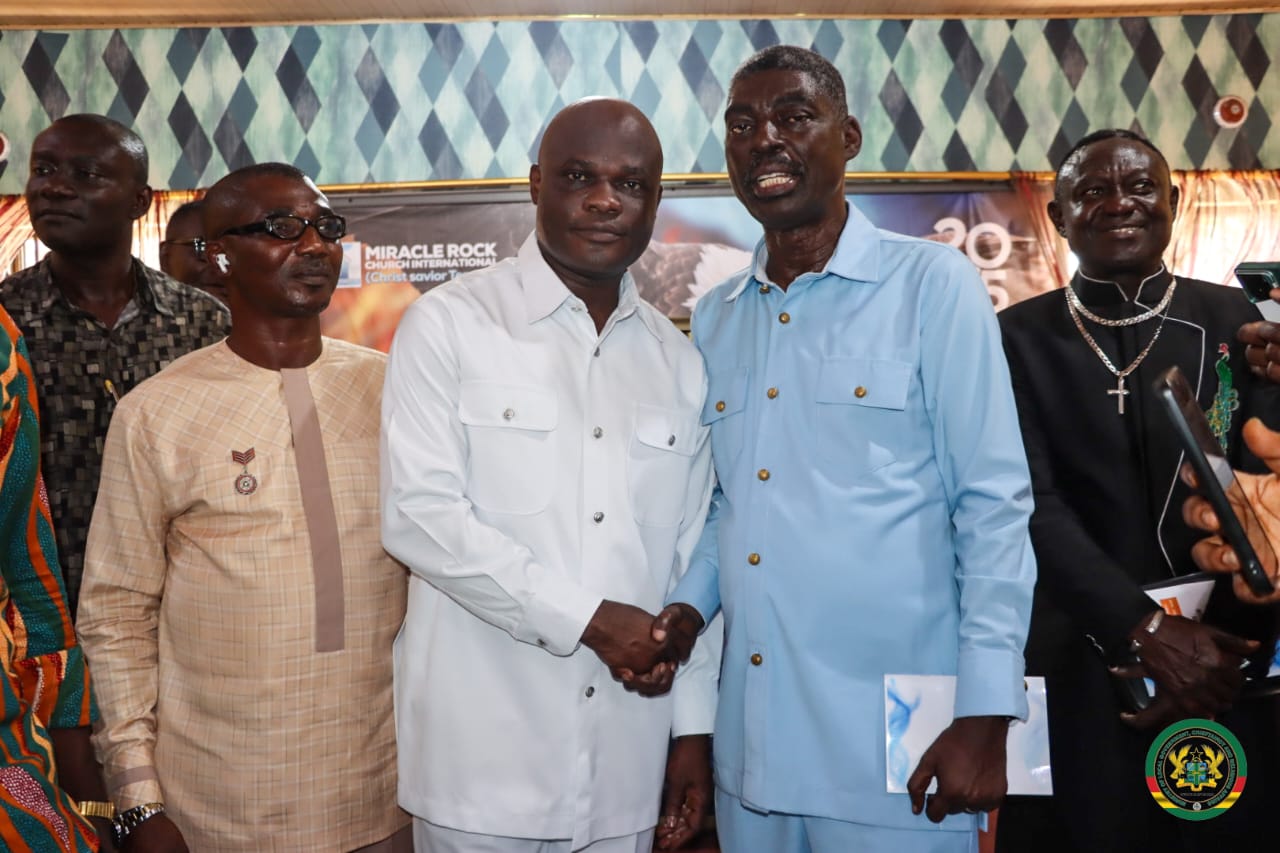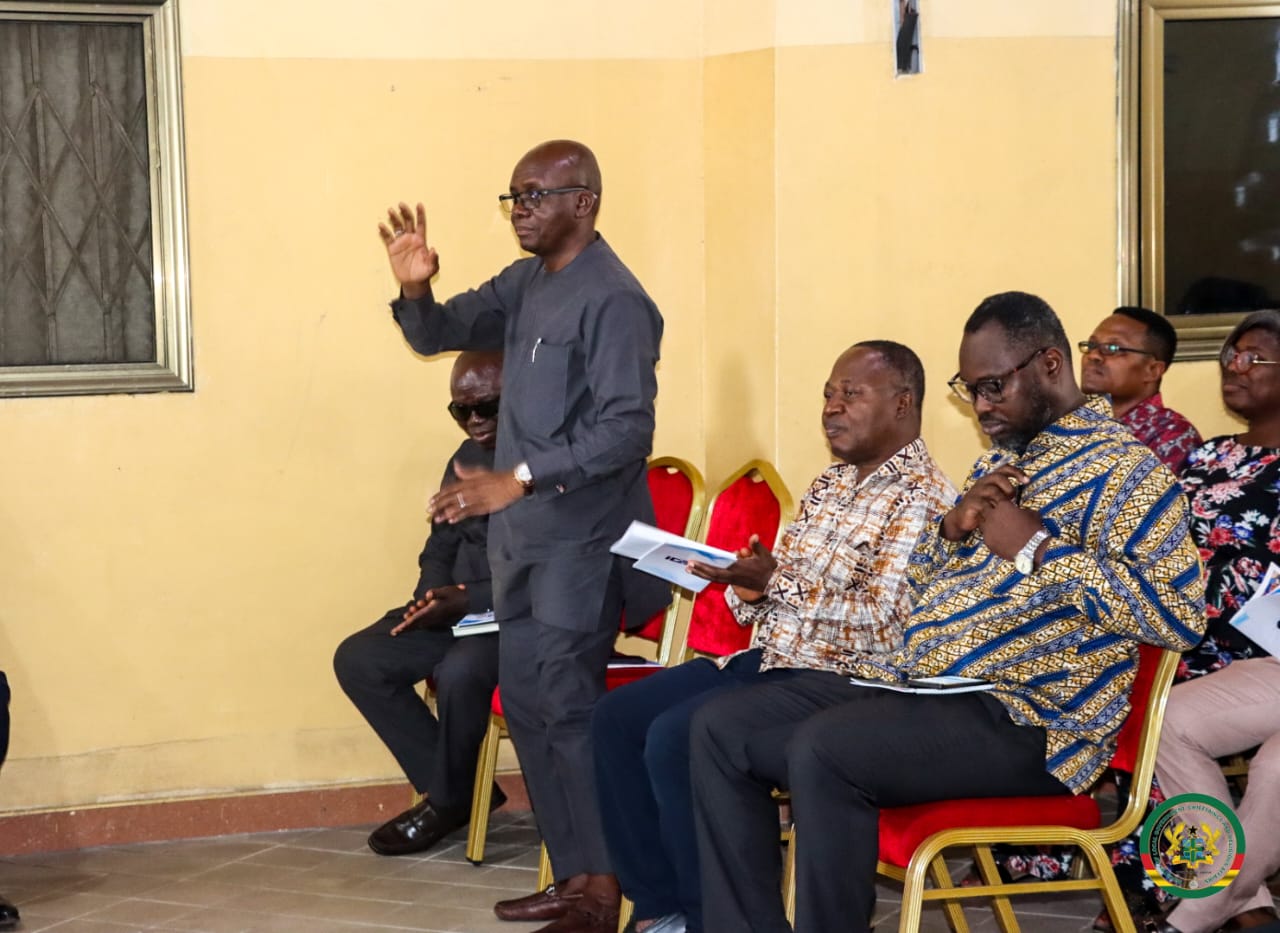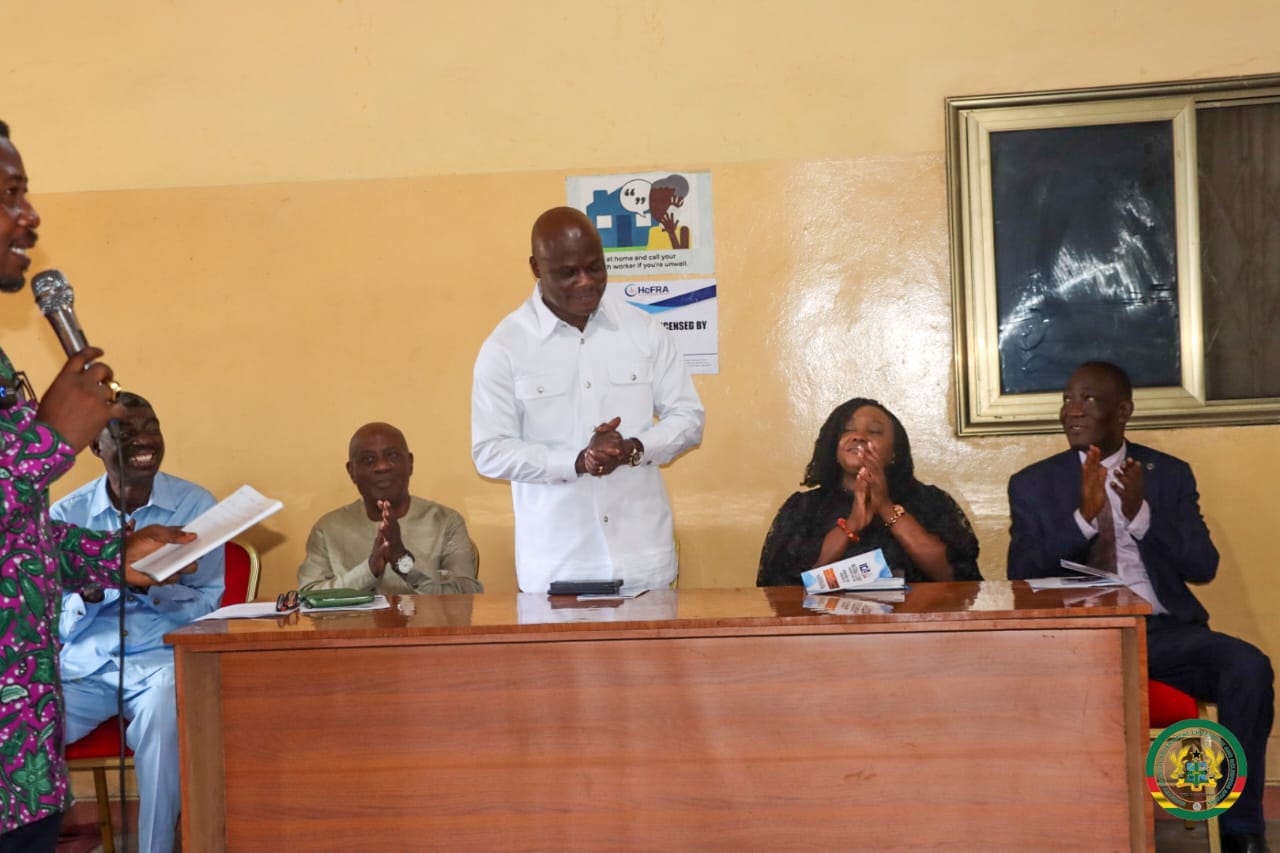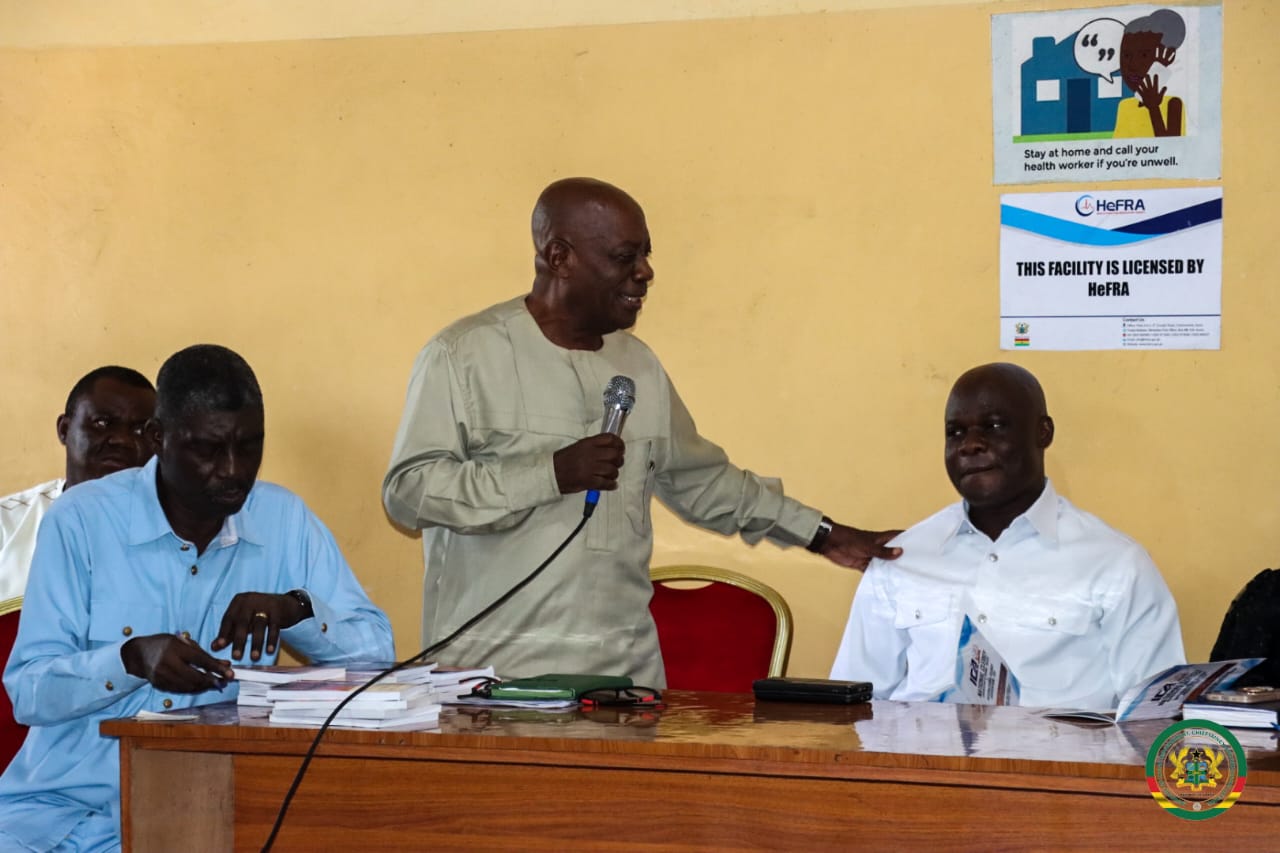The President of the Greater Accra Regional House of Chiefs and Paramount Chief of Nungua, Nii Odaifio Welentsi III, has pledged the full and unwavering support of traditional authorities in the region towards the successful implementation of the reintroduced National Sanitation Day (NSD), scheduled for launch and oberservance in May.
The commitment was made during a courtesy call by the Minister for Local Government, Chieftaincy and Religious Affairs, Hon. Ahmed Ibrahim, accompanied by his Deputy, Hon. Rita Naa Odoley Sowah, as part of a nationwide stakeholder engagement drive aimed at building consensus and rallying support for the national sanitation agenda.
In his remarks, Hon. Ahmed Ibrahim highlighted the devastating consequences of environmental degradation, attributing it largely to indiscriminate waste disposal and a general disregard for hygiene. He cited growing concerns about the loss of agricultural productivity and the pollution of Ghana’s marine resources.
“Our farmers can no longer produce as they used to because our lands are choked with plastic waste. Our fishermen now haul more bottles and plastics than fish. The situation is dire, and the solution must begin with a new mindset, a new culture, and new habits centered around cleanliness and responsibility,” he stated.
Nii Odaifio Welentsi III, in a strong show of endorsement, expressed the firm commitment of the Regional House of Chiefs to champion the cause of environmental cleanliness across the Ga-Dangme traditional areas.
“In my capacity as President of the Greater Accra Regional House of Chiefs, I will ensure that this important message is carried to every traditional area within the Ga-Dangme lands. Sanitation is not the responsibility of government alone. It is a shared responsibility, and as traditional leaders, we must lead this charge from the front,” he affirmed.
The Regional House of Chiefs pledged to utilise its traditional authority to raise awareness, mobilise communities, and actively participate in clean-up campaigns. The President also stressed the need to transition the National Sanitation Day from a periodic exercise into a sustained, community-led movement that fosters a culture of cleanliness, civic pride, and national responsibility.
“We owe it to ourselves and to future generations to ensure a clean and healthy Ghana,” he declared.
The engagement forms part of the Ministry’s broader strategy to secure high-level buy-in from traditional and religious institutions as the country prepares to launch the revitalised National Sanitation Day as a transformative tool for public health, environmental protection, and national consciousness.
Source: Matilda Tettey/Sandra Owusu Asamoah
(Public Relations Unit MLGDRD)
The National Clergy Association of Ghana (NACAG) has pledged its full support for the upcoming National Sanitation Day (NSD) initiative, committing to leverage its expansive networks to advocate for environmental cleanliness and public hygiene across the country.
This endorsement was formalized during a high-level courtesy call by the Minister for Local Government, Chieftaincy and Religious Affairs (MLGCRA), Hon. Ahmed Ibrahim, and his Deputy, Hon. Rita Naa Odoley Sowah, to the leadership of NACAG. The engagement forms part of the Ministry’s broader stakeholder consultation efforts aimed at galvanising national consensus and multi-sectoral collaboration ahead of the initiative’s formal launch in May.
Addressing the clergy, Hon. Ahmed Ibrahim highlighted the devastating impact of poor sanitation on Ghana’s socio-economic fabric, with particular emphasis on agriculture and the fishing industry. He lamented the increasing degradation of arable land and marine ecosystems, attributing the trend to unchecked pollution and indiscriminate plastic waste disposal.
“Today, our farmers struggle because our soil is contaminated, and our fishermen are pulling up bottles instead of fish,” the Minister decried. “We must change the narrative, and that change must begin with a shift in mindset, culture, and collective responsibility.”
Hon. Ibrahim urged the clergy to take a leading role in championing behavioral change, noting the Church’s unparalleled moral influence and its deep presence within communities. “Let the message of resurrection this Easter include a call to resurrect our national consciousness towards sanitation,” he appealed.
In response, the Executive Secretary of NACAG, Bishop Dr. Charles Abban, warmly welcomed the initiative, describing it as both a timely intervention and a spiritual imperative. He affirmed the Association’s commitment to the campaign, citing the Church’s duty to safeguard life, health, and the environment.
“We see this not only as a national duty but as a spiritual obligation. The Church will rise to the occasion,” Bishop Abban assured. “We will ensure that this message reaches every congregation. Our pastors and members will become sanitation ambassadors in their communities.”
The support of NACAG marks a significant milestone in the build-up to the NSD campaign, bringing with it the weight of the Church’s moral authority and far-reaching grassroots infrastructure. With religious institutions present in nearly every community, their advocacy for sanitation, behavioral change, and civic responsibility could catalyze a nationwide movement.
As preparations intensify toward the official launch of National Sanitation Day, the Ministry has reiterated that sustainable change in sanitation culture will require unity, shared ownership, and collective commitment. The backing of NACAG signals a strong and promising start in the journey to make Ghana cleaner, healthier, and more environmentally resilient.
Source: Matilda Tettey/Sandra Owusu Asamoah
(Public Relations Unit MLGDRD)

